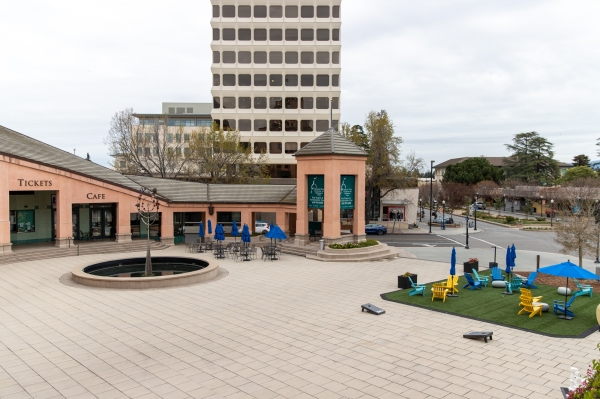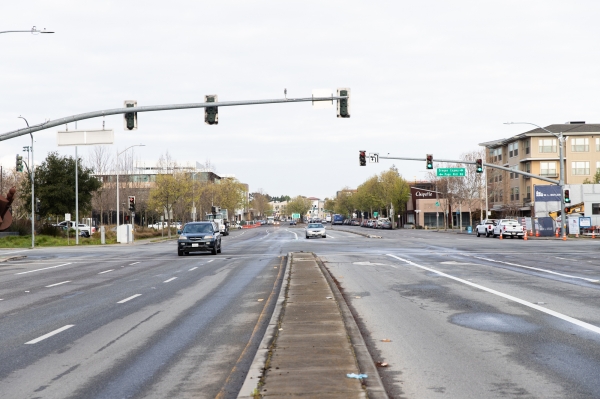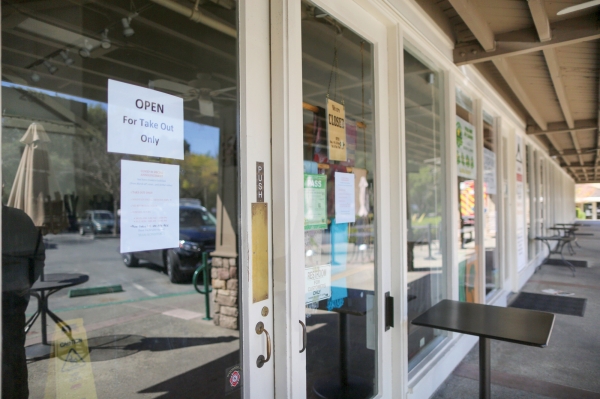With the number of coronavirus cases rising and health systems bracing for a surge of patients, Bay Area health officials extended on Tuesday the regional stay-at-home order until May 3 and announced new restrictions on businesses and construction activities.
The new order, which Santa Clara County Health Officer Sara Cody announced, builds on the "shelter-in-place" order that Cody and officials from six other Bay Area jurisdictions announced on March 16 and that was set to expire on April 7. Now, residents in the seven jurisdictions will be asked to stay home for all but essential functions until May 3, a move that they say will help preserve critical hospital capacity.
"Our hospitals are beginning to fill with COVID-19 patients," Cody said during a noon press conference in San Jose. "We need more time."
The order applies to Santa Clara, San Mateo, Alameda, Contra Costa and Marin counties, as well as San Francisco and Berkeley.
Of the new restrictions announced Tuesday, the most significant ones pertain to businesses that remain open and construction projects that are in progress. All businesses that continue to operate will now be required to prepare and post a "social distancing" plan detailing the measures they are taking to ensure compliance with county guidance. In addition, essential businesses that also offer nonessential services will now be required to halt those and limit their operations to only essential components.
The new order also limits construction activity, explicitly banning construction of purely market-rate housing. However, developments that have at least 10% of their units designated as below-market-rate will be allowed to proceed.
Whereas the prior order gave wide latitude to cities to move ahead with public works projects, the new one allows local governments to advance only those projects that they specifically designate as "essential government functions." As such, it will likely impact numerous projects that are pending in Palo Alto, including the California Avenue parking garage and the proposed bike bridge over U.S. Highway 101.
The order also requires playgrounds, athletic courts, dog parks and most other types of recreation activities to be closed to the public. In most cases, cities had already closed off these facilities, including Menlo Park.
In announcing the order, Cody pointed to the significant rise in COVID-19 cases throughout the county, which she noted remains "the epicenter of this outbreak in the Bay Area." The number of cases has increased from 138 on March 17, when the last order took effect, to 890 on Tuesday. The number of deaths has climbed from 3 to 30 over that period.
Even so, she said there have been some indications that the actions taken by various counties to limit social interactions are beginning to slow the spread.
"The sacrifices that everyone has made have given our hospitals valuable time to prepare for the expected influx of patients," Cody said. "However, more time and additional resources are needed to slow the spread and to further reduce the impact on our local hospitals and local health care providers," Cody said.
While the number of COVID-19 cases is climbing, county hospitals have yet to reach their capacity for treating patients. County Executive Dr. Jeff Smith said that as of Monday, the county's 11 hospitals had 152 confirmed COVID-19 patients and another 90 who are suspected of having COVID-19.
The county's hospitals have 1,475 beds and they have 611 ventilators available, of which 209 are now in use. The county also has 300 intensive care unit (ICU) beds total, of which 119 are currently available, Smith said. Currently, there are 56 COVID-19 patients in ICU in the 11 hospitals.
"So at this point, we're not near capacity but we're getting prepared for capacity," Smith said.
The number of new cases has fluctuated sharply in recent days, with the county reporting 17 new cases last Saturday, 55 on Sunday and 202 cases on Monday. Officials warned, however, that the huge variation is attributable in large part to how and when the cases are reported to the county.
Even accounting for the variations, county officials believe they are seeing "a little bit of a slowing," Cody said.
"I'm saying it very cautiously. It's really, really early. … It will take more time to see the impact of social distancing," she said.
Find comprehensive coverage on the Midpeninsula's response to the new coronavirus by Palo Alto Online, the Mountain View Voice and the Almanac here.
-





Comments